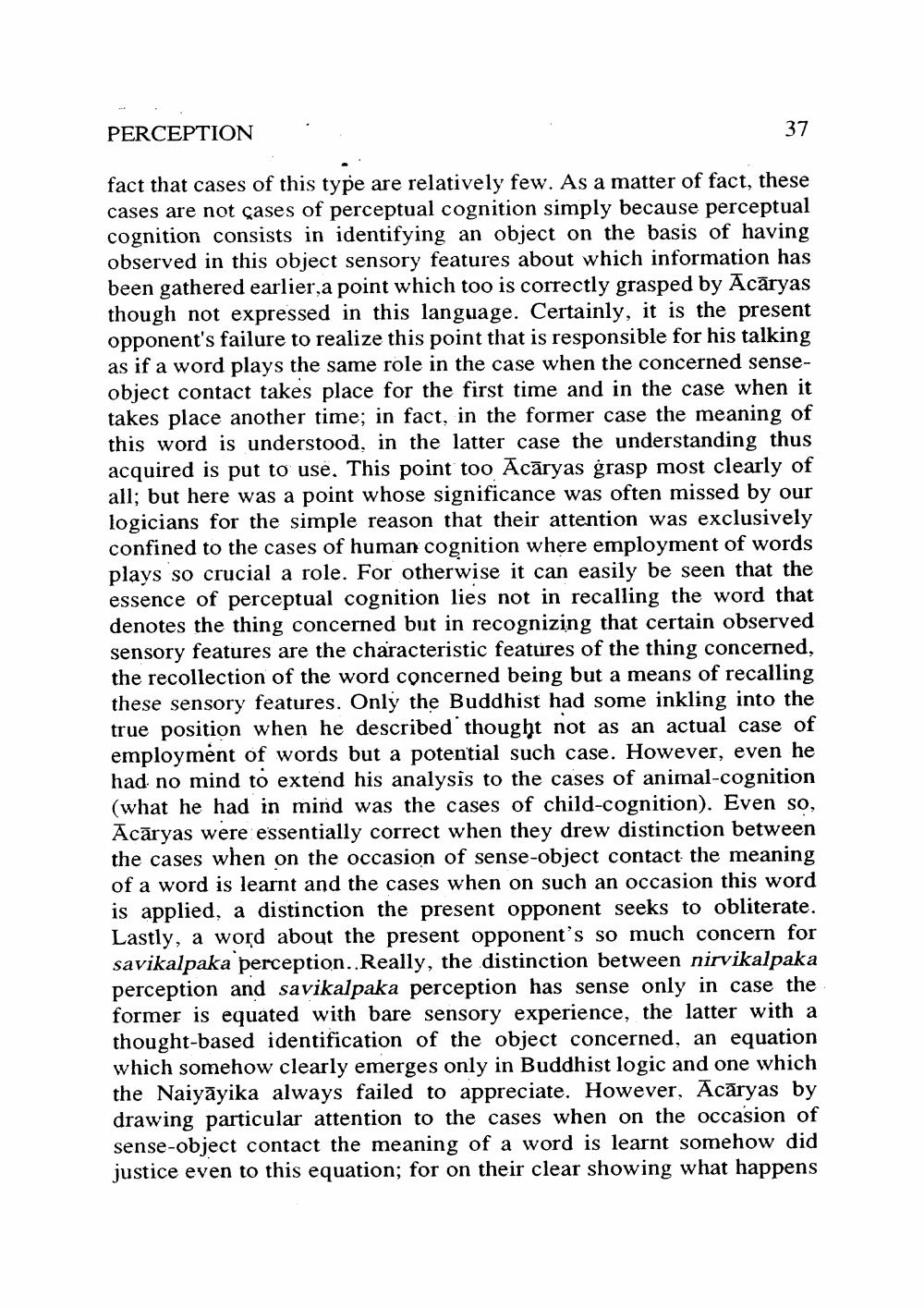________________
PERCEPTION
37
fact that cases of this type are relatively few. As a matter of fact, these cases are not cases of perceptual cognition simply because perceptual cognition consists in identifying an object on the basis of having observed in this object sensory features about which information has been gathered earlier, a point which too is correctly grasped by Acāryas though not expressed in this language. Certainly, it is the present opponent's failure to realize this point that is responsible for his talking as if a word plays the same role in the case when the concerned senseobject contact takes place for the first time and in the case when it takes place another time; in fact, in the former case the meaning of this word is understood, in the latter case the understanding thus acquired is put to use. This point too Acāryas grasp most clearly of all; but here was a point whose significance was often missed by our logicians for the simple reason that their attention was exclusively confined to the cases of human cognition where employment of words plays so crucial a role. For otherwise it can easily be seen that the essence of perceptual cognition lies not in recalling the word that denotes the thing concerned but in recognizing that certain observed sensory features are the characteristic features of the thing concerned, the recollection of the word concerned being but a means of recalling these sensory features. Only the Buddhist had some inkling into the true position when he described thought not as an actual case of employment of words but a potential such case. However, even he had no mind to extend his analysis to the cases of animal-cognition (what he had in mind was the cases of child-cognition). Even so, Acāryas were essentially correct when they drew distinction between the cases when on the occasion of sense-object contact the meaning of a word is learnt and the cases when on such an occasion this word is applied, a distinction the present opponent seeks to obliterate. Lastly, a word about the present opponent's so much concern for savikalpaka perception..Really, the distinction between nirvikalpaka perception and savikalpaka perception has sense only in case the former is equated with bare sensory experience, the latter with a thought-based identification of the object concerned, an equation which somehow clearly emerges only in Buddhist logic and one which the Naiyāyika always failed to appreciate. However, Acāryas by drawing particular attention to the cases when on the occasion of sense-object contact the meaning of a word is learnt somehow did justice even to this equation; for on their clear showing what happens




